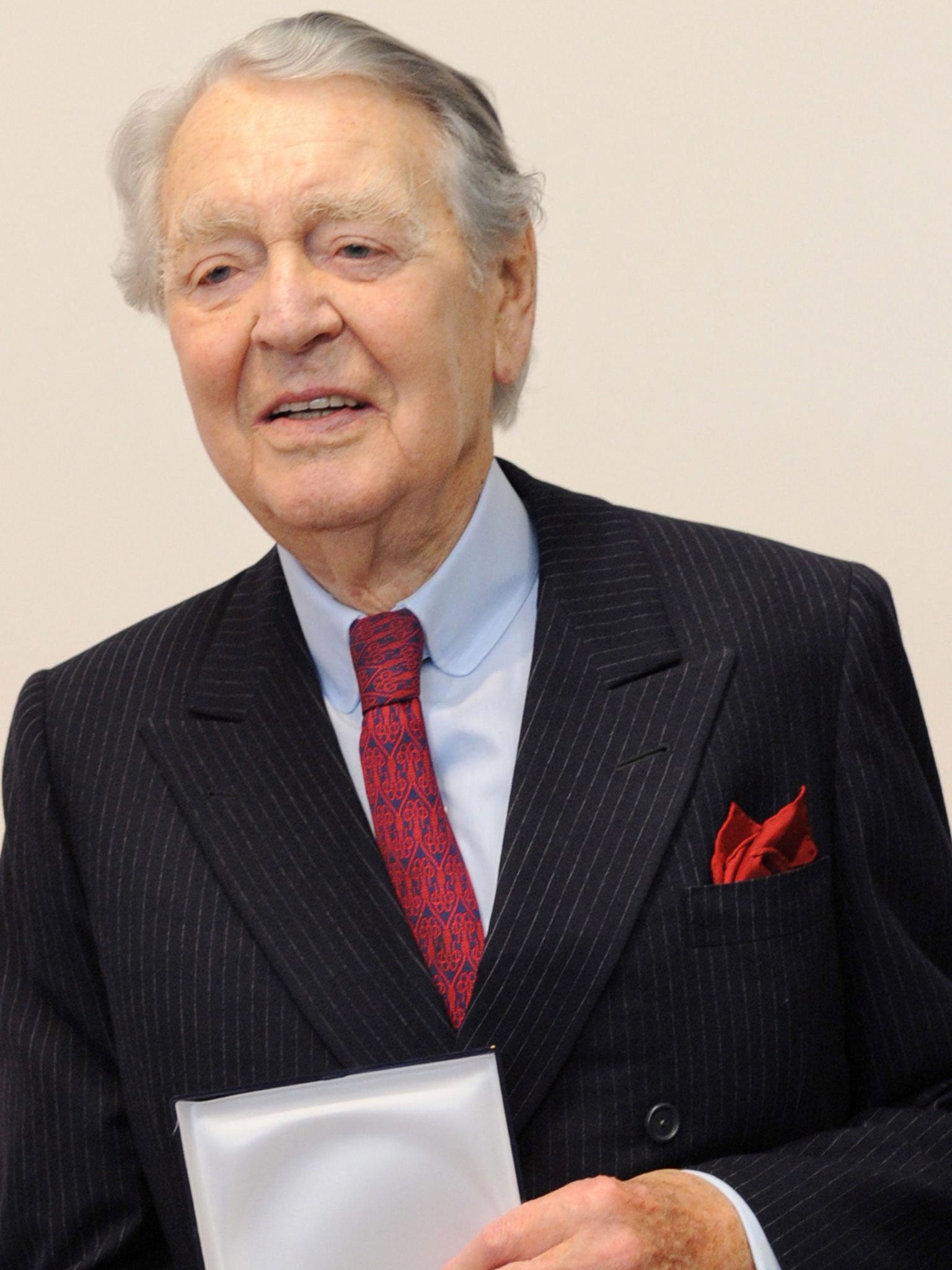Berthold Beitz: Industrialist who saved hundreds of Jews from the Nazis

Your support helps us to tell the story
From reproductive rights to climate change to Big Tech, The Independent is on the ground when the story is developing. Whether it's investigating the financials of Elon Musk's pro-Trump PAC or producing our latest documentary, 'The A Word', which shines a light on the American women fighting for reproductive rights, we know how important it is to parse out the facts from the messaging.
At such a critical moment in US history, we need reporters on the ground. Your donation allows us to keep sending journalists to speak to both sides of the story.
The Independent is trusted by Americans across the entire political spectrum. And unlike many other quality news outlets, we choose not to lock Americans out of our reporting and analysis with paywalls. We believe quality journalism should be available to everyone, paid for by those who can afford it.
Your support makes all the difference.Berthold Beitz, who died on 30 July at the age of 99, was honoured for saving hundreds of Jews in Poland during the Second World War and became one of post-war West Germany's leading industrialists.
Beitz and his wife, Else, were honoured by Germany's main Jewish group, the Jewish Council, its highest honour, the Leo-Baeck Award in 2000 for saving hundreds of Jewish workers at an oil field he managed in occupied Poland from deportation to Nazi death camps. In 1973, Beitz had been given the Righteous Among the Nations honorific by the Israeli Yad Vashem Holocaust Museum, the highest honour given to a Gentile for saving Jews.
He also played a role in world sports as a member of the International Olympic Committee from 1972 to 1988, the last four years as a vice president. He was also a member of the board of the organising committee for the 1972 Olympics in Munich, which were overshadowed by the deaths of 11 members of the Israeli delegation in an attack by Palestinian gunmen.
Beitz was born in 1913 in Zemmin, eastern Germany. He studied to become a banker and took a position at an oil field in occupied Poland in 1939. He saved many of the Jewish workers there from the death camps, sometimes by hiding them in his home. In August 1942 he saved 250 Jews from being deported to the Belzec death camp by claiming they were indispensible to keep up production.
Asked later about his motivation, he said, "There was no anti-Fascism, no resistance. We watched from morning to evening, as close as you can get, what was happening to the Jews ... When you see a woman with her child in her arms being shot, and you yourself have a child, then your response is bound to be completely different."
In the 1950s Beitz agreed to administer the Krupp steel company, which had been heavily involved in armaments production during the war. He headed the company in various positions for around 60 years. In 1967, he launched a foundation with the late Alfried Krupp's fortune supporting projects in Israel, among others. Until recently he went to work at his office in Essen almost every day.
Via the Krupp Foundation he also invested heavily in the arts and the revitalisation of the Ruhr Valley Region, West Germany's industrial heartland.
Join our commenting forum
Join thought-provoking conversations, follow other Independent readers and see their replies
Comments